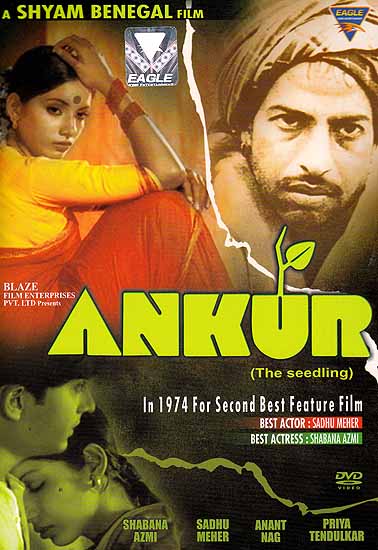
Director:
Shyam BenegalWriters:
Shyam Benegal (story), Satyadev Dubey (dialogue)Stars:
Shabana Azmi, Sadhu Meher and Anant NagLaxmi lives a poor lifestyle in a small village in India along with her husband, Kishtaya, who is a deaf-mute. Both husband and wife work for the wealthy landlord. The landlord's son, Surya, has to cancel his studies and return home to look after the estate, as well as formalize his marriage to Saroj, the girl he was compelled to get married to when he was very young. Shortly thereafter Kishtaya is apprehended stealing toddy from the fields, is severely beaten, left senseless, and when he recovers he absconds, leaving Laxmi alone to fend for herself. Surya finds her attractive and starts an intimate relationship with her, much to the chagrin of the rest of the family. Things only get worse when Saroj moves in to live with Surya - compelling him to make a final decision about a visibly pregnant Laxmi.Written by rAjOo (gunwanti@hotmail.com)
Surya, the son of a wealthy landowner, returns home from the city after graduating from school and is expected by his father to get married and take over a piece of land. He settles in not without conflict with the other people from the village, whose traditions he does not share. He uses his position to begin a love affair with Laxmi, who is unhappily married to a deaf-mute drunk. When Laxmi is left by her husband, Surya invites her to live at his house, much to the disdain of everybody else, who see this as a breach of the caste system. Their love affair ends abruptly when Surya's wife arrives. Rather than keeping to his promises, Surya drives Laxmi out of the house; when it turns out that she is pregnant, she suddenly becomes a threat that must be disposed of. The final scene of this movie raised many eyebrows upon its release in 1973, as it was seen as a disquieting symbol of rebellion against the country's social structures. Shabana Azmi's compelling performance as Laxmi laid the foundation for her becoming one of the great actresses of the independent Indian cinema of the 1970s and 80s. Written by H. Prillinger

No comments:
Post a Comment